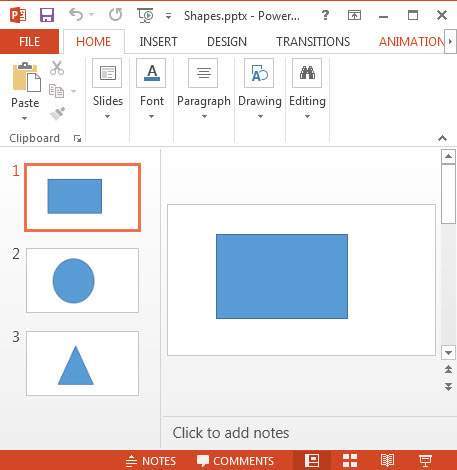
Apache POI PPT - 读取形状
您可以使用 XSLFShape 类的方法 getShapeName()来计算演示文稿中使用的形状数量。 下面给出的是从演示中读取形状的程序:
import java.io.File;
import java.io.FileInputStream;
import java.io.FileOutputStream;
import java.io.IOException;
import org.apache.poi.xslf.usermodel.XMLSlideShow;
import org.apache.poi.xslf.usermodel.XSLFShape;
import org.apache.poi.xslf.usermodel.XSLFSlide;
public class ReadingShapes {
public static void main(String args[]) throws IOException{
//creating a slideshow
File file = new File("shapes.pptx");
XMLSlideShow ppt = new XMLSlideShow(new FileInputStream(file));
//get slides
XSLFSlide[] slide = ppt.getSlides();
//getting the shapes in the presentation
System.out.println("Shapes in the presentation:");
for (int i = 0; i < slide.length; i++){
XSLFShape[] sh = slide[i].getShapes();
for (int j = 0; j < sh.length; j++){
//name of the shape
System.out.println(sh[j].getShapeName());
}
}
FileOutputStream out = new FileOutputStream(file);
ppt.write(out);
out.close();
}
}
将上述Java代码另存为 ReadingShapes.java ,然后从命令提示符处编译并执行,如下所示:
$javac ReadingShapes.java $java ReadingShapes
它将编译并执行以生成以下输出。
Shapes in the presentation: Rectangle 1 Oval 1 Isosceles Triangle 1
新添加的具有各种形状的幻灯片显示如下:
